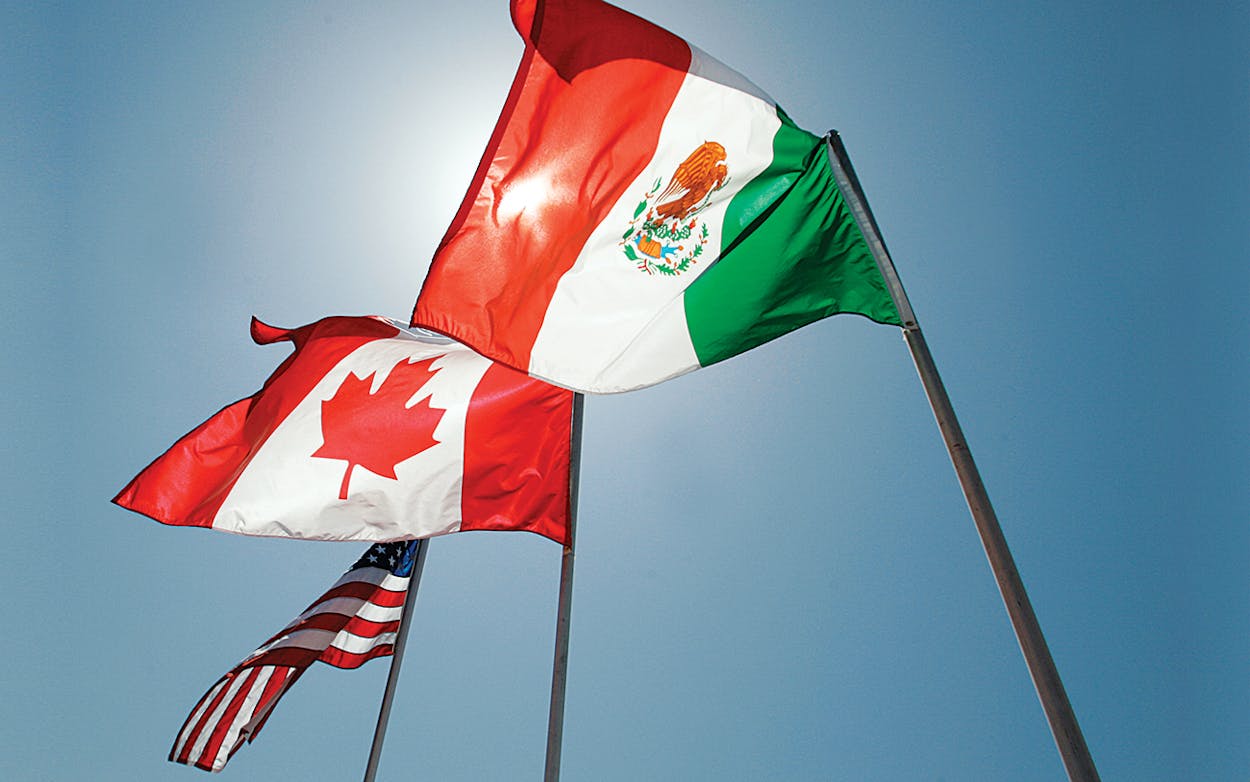It’s been nine weeks since renegotiations of the North American Free Trade Agreement kicked off. It was an ambitious agenda for a short period of time, from incorporating the energy and e-commerce sectors to pushing for higher labor and environmental protections. Yet, four rounds of negotiations later, the hopes of bringing the twenty-five-year old agreement into the twenty-first century look increasingly slim. At this point, successful negotiations may simply mean NAFTA’s existence when this all ends, and fond memories of a missed opportunity to have done more.
To truly understand what’s going on, it’s worth revisiting how we got here. During the campaign period, then-candidate Donald Trump made countering trade a tenet of his platform, singling out NAFTA as the “worst deal ever” and accusing Mexico of taking advantage of its northern neighbor. In the Oval Office, his tone remained largely unchanged. Even as Trump’s team began establishing the renegotiating framework for NAFTA, the president never seemed to be sold on the idea. In a leaked call with Mexican President Enrique Peña Nieto, Trump made it clear that he was coaxed into the negotiations and was by no means convinced of their utility.
For most economists and trade analysts, this lax approach toward scrapping NAFTA appears to verge on the irrational. Most agree that NAFTA could use an update, but this language is almost always wrapped in a recounting of its virtues: the rising U.S. exports, lower prices for consumers, and the 14 million jobs that it underpins across the United States. Industry executives will also echo this sentiment, with their supply chains weaving back and forth across continent. At first glance, then, it could feel remarkable that a president would review those same graphs, skim those same articles, and still feel no qualms about withdrawing.
Except it’s rational (sort of). Ultimately, it comes down to what Trump is choosing to maximize: short-term politics or the long-term health of the economy. And with each threat of withdrawal or deliberate destabilization, it’s becoming clear that Trump’s priority lands squarely on the political side. Attacking NAFTA during negotiations is clearly about short-term politics, fanning the flames of a sub-set of the population that views trade with Mexico not as a set of neat charts of imports and exports, but intertwined with vaguer concepts of globalization, immigration, and fairness. It’s not that Americans dislike trade; in fact, most believe it’s a good thing for the country, including more than six out of ten Trump supporters. But each day it’s becoming clear that the issue is not always trade itself, but also with whom we trade—and for many, Mexico is the villain.
For decades, cheap political points have been scored by accusing Mexico of ripping off U.S. workers and stealing their jobs, and images abound of Mexicans getting rich off Americans empty factories. It is in this context, where feelings of unfairness and anger loom larger than statistics and models—no matter how accurate—that bilateral trade becomes decoupled from economic reality. This makes economic policy depend more on its political reception than on the substantive arguments, a confusing balancing game for negotiators and the United States’ economic partners.
All this to say that we have two divergent objectives playing out simultaneously. Trump is maximizing short-term politics while NAFTA negotiators are working away (or engaging in tense stalemates) ostensibly to improve the technical side of the agreement, thus improving upon the region’s competitiveness and ability to create jobs and prosperity. In the tug of two divergent polls, the United States is running the risk of completely pulling apart NAFTA and the economic system that it has fostered, and in the process, endangering our ability to lead economically, in the hemisphere and around the world.
With the negotiations stalling, it’s time to be honest with ourselves that this is not just a problem of finding a compromise. This is a story about an administration that sees no political benefit in negotiating NAFTA in good faith, and doesn’t value economic reality. As the President might tweet: “So sad. So pathetic.”
Antonio Garza is a former U.S. ambassador to Mexico. He is counsel in the Mexico City office of White & Case. Reach him through tonygarza.com and Twitter, @aogarza. Opinions expressed by Texas Monthly guest columnists are their own.






